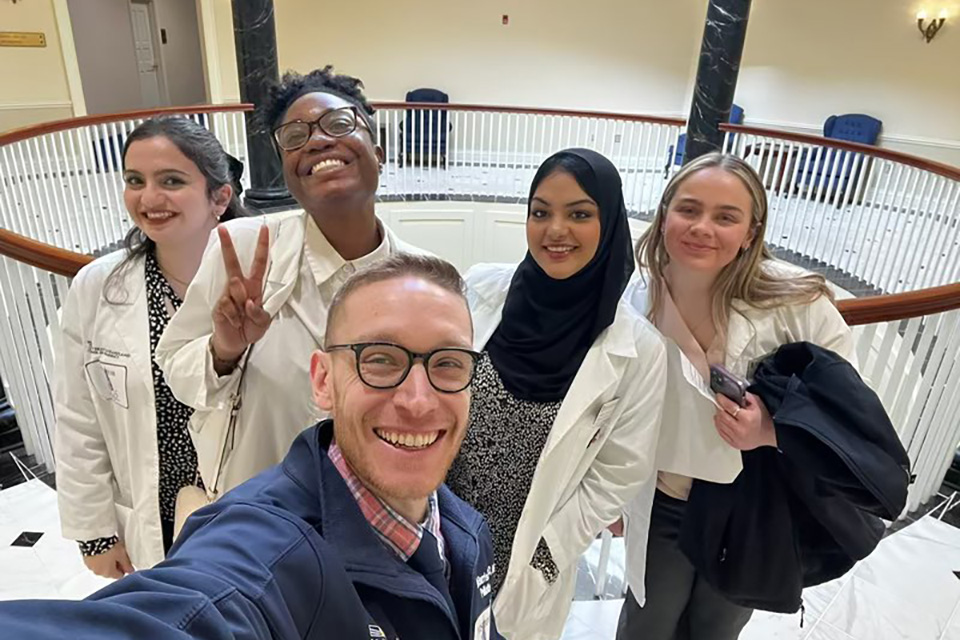Reflections from Legislative Day 2024
Written By: Lotanna Ezeofor, third-year student pharmacist and president of the Student Government Association
The University of Maryland School of Pharmacy participated in the Maryland Pharmacy Coalition’s annual Legislative Day on Feb. 8, and I can’t help but feel a sense of pride in being part of a historic moment every year. The pharmacy profession has always been dynamic, constantly evolving to meet the changing needs of patients and the health care landscape. This Legislative Day was a testament to ongoing efforts to advocate for our profession and ensure that pharmacists can continue to provide high-quality care to their communities.
As we gathered with students from pharmacy schools across the state, pharmacists, faculty, and staff, it was inspiring to see the collective passion and dedication to advancing our profession. The discussions we had with our state legislators in Annapolis were not just about policies and regulations; they were about the future of pharmacy and the impact we can make on patient care.
One of the key issues we advocated for was Health Occupations – Pharmacists – Administration of Vaccines (HB76/SB18). This legislation aims to empower pharmacists to administer vaccinations to children ages 5-17 without a physician’s prescription. It’s a critical step in ensuring that children have access to essential vaccinations, especially in underserved communities where access to health care may be limited.
Another important issue we addressed was the bill on Health Insurance Carriers and Pharmacy Benefit Managers – Clinician Administered Drugs and Related Services (SB 754). This legislation is focused on prohibiting payer-mandated white bagging in all care settings within Maryland. White bagging is a practice in health care where medications for patients are dispensed by a specialty pharmacy and delivered directly to the health care provider for administration. White bagging restrictions can hinder pharmacists’ ability to provide timely and personalized care to patients, impacting their overall health outcomes. By advocating against these restrictions, we’re fighting for the autonomy and integrity of pharmacy practice.
Lastly, we supported the establishment of the Public Health – Nonoccupational Postexposure Prophylaxis (nPEP) Standing Order Program (SB246/HB127). This legislation aims to allow pharmacists to dispense post-exposure HIV prevention medication under a standing order. It’s a crucial step in expanding the role of pharmacists in public health initiatives and addressing the growing need for preventive care measures.
Upon hearing about these pharmacy issues, legislators were very eager to engage with students and understand how these issues might impact the future of pharmacy. They were curious about the implications and were appreciative of students advocating for their futures. Additionally, students provided legislators with a packet containing all the bills we were advocating for. A QR code attached to the packet allowed them to access the bills online.
Participating in these discussions with legislators was not just about advocating for our profession; it was about advocating for our patients and the communities we serve. It was an opportunity to make our voices heard and shape the future of pharmacy practice in Maryland. And as the pharmacy profession continues to grow and evolve, it’s essential for students to remain engaged and continue making history through advocacy efforts.

